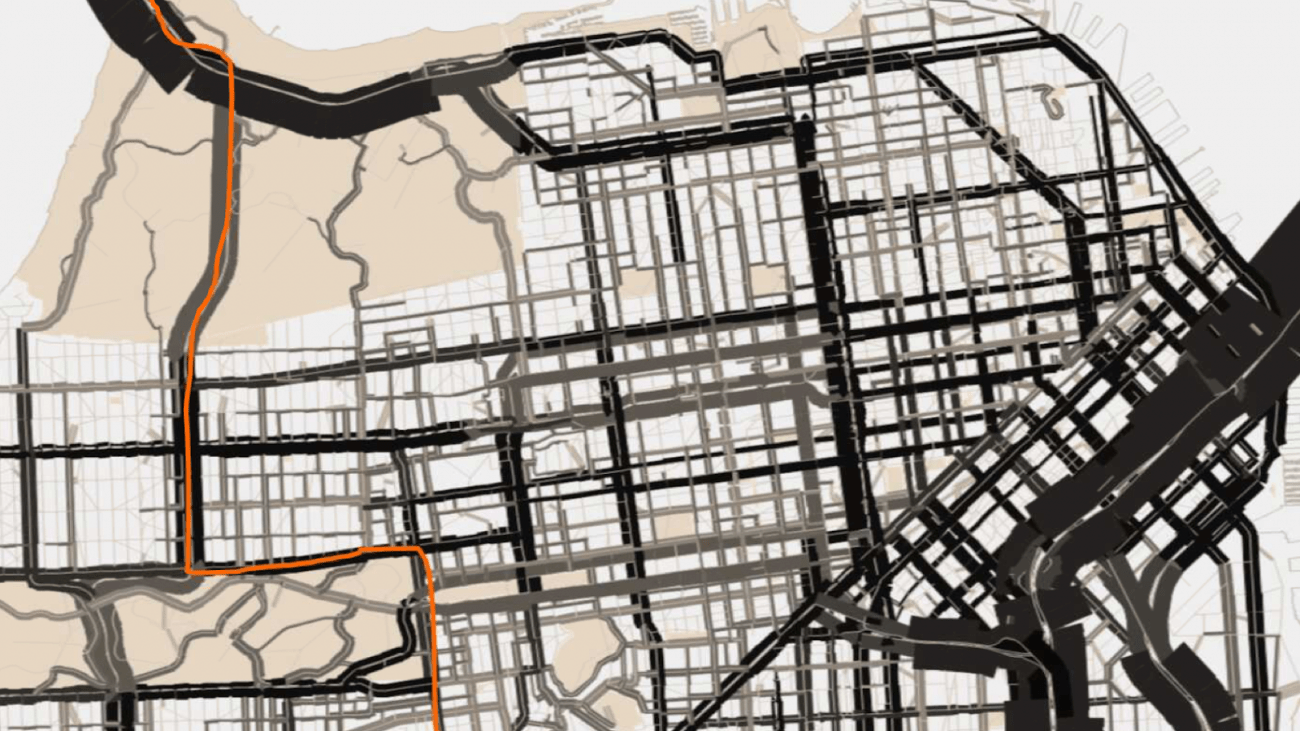
Introduction
The San Francisco Chained Activity Modeling Process, known as SF-CHAMP, is the city’s travel forecasting tool. One of several analysis tools the Transportation Authority uses, SF-CHAMP predicts future travel patterns for the city.
SF-CHAMP works by assessing the impacts of land use, socioeconomic, and transportation system changes and then forecasting how people’s travel patterns will change. SF-CHAMP was developed to reflect San Francisco’s unique transportation system and socioeconomic and land use characteristics.
ADDITIONAL SF-CHAMP DETAIL
SF-CHAMP uses San Francisco residents’ observed travel patterns, detailed representations of San Francisco’s transportation system, population and employment data, transit line boardings, roadway volumes, and the number of vehicles available to San Francisco households to produce measures relevant to transportation and land use planning. Using future year transportation, land use, and socioeconomic inputs, the model forecasts future travel demand.
Before using SF-CHAMP for forecasting travel demand, the accuracy of model results are first validated against observed data for a base year, including detailed travel survey information, traffic volumes on major facilities, and transit boardings by operator.
The SF-CHAMP Model incorporates a state of the art approach to forecasting travel demand. This activity-based model is more sensitive than traditional models to a broader array of conditions that influence travelers’ choices.
One of the fundamental differences between the San Francisco Model and traditional models is that it is tour-based, not trip-based. A tour is a chain of trips made by an individual that begins and ends at home without any intermediate stops at home, whereas a trip is a single movement from an origin to a destination. As such, the SF-CHAMP model is more complex than the traditional modeling approach.
Research
We benefit from a wealth of basic and applied research in a wide range of fields such as travel behavior, decision science, behavioral economics, econometrics, computer science, traffic engineering, and network modeling. To the extent that we have an overlap of interests and available time, we would like to help any research projects along by sharing our perspectives and expertise as bleeding-edge practitioners, sharing models and data, and being a test-bed for applied research.
Resources
Executive Summary of original model design & development, 2002 (PDF)
Model development documentation, 2002 (ZIP)
Contact
If you have something in mind that you think we would be interested in, please let us know: data@sfcta.org.